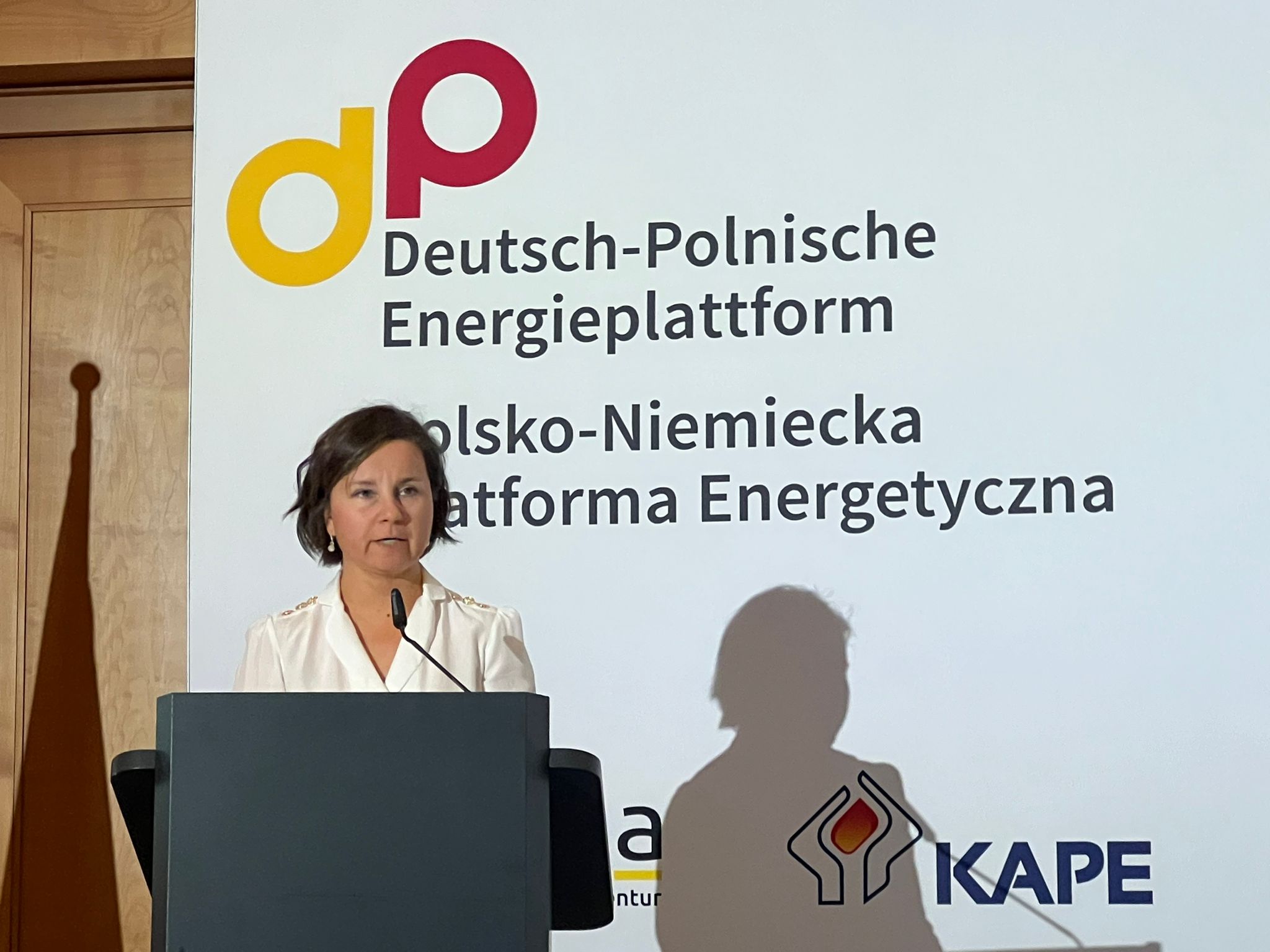Discussions on Polish-German cooperation in energy transformation are starting once again, with a loophole allowing Russia to earn a billion euros from the sale of fossil fuels to the EU, and with trolls combating climate policy.
The second edition of the Polish-German energy transition Forum within the framework of the Polish-German energy platform has launched. The first one took place in Warsaw, this one takes place in Berlin. Politicians and businesses from both countries are talking about cooperation in the energy sector.
„Europe’s energy transition is to be the driving force behind a strong and resilient Europe,” said Jennifer Morgan, Special Representative for Climate Policy and Secretary of State for Foreign Affairs. „On both sides of the Oder, renewables need to be developed even faster to ensure industrial competitiveness, but the energy infrastructure needs to keep up,” she said. „Almost 40 percent of Germany’S CO2 emissions come from heating. We need progress in this area, but heat must be at a price acceptable to society. This is also a big challenge in Poland. The project of cooperation between Goerlitz and Zgorzelec to move away from coal together is an example that we can cooperate in this area,” the minister added, referring to the plan to achieve joint climate neutrality of both cities through decarbonization of heating.
„Poland is expected to have 300,000 new jobs by 2050. Offshore wind farms are expected to create 70,000 jobs in Poland. But this change needs to be socially responsible and give perspective to as many people as possible,” Morgan said. She acknowledged that this process was more advanced in Germany and is supported in the post-mining regions.
„I will make every effort to continue this forum and other such meetings,” said Urszula Zielińska, Secretary of State at the Ministry of Climate and Environment. „Cooperation with Germany is absolutely natural and extremely important for me. In today’s geopolitical environment, it is crucial. Europe’s situation today is difficult. Russia’s full-scale aggression in Ukraine is in its third year, and Ukraine’s situation is becoming increasingly difficult, and at times seems dramatic,” she said.
„The situation in the Middle East is deteriorating, and China and Russia are stepping up cooperation. Russia is looking for raw materials in the Arctic and six days ago announced the search for deposits to which the British claim rights,” warned Urszula Zielińska.
„The European Union has bought 35 million barrels of fuel, at least partially from Russia. This was possible thanks to a loophole that, despite the ban on the import of Russian oil, makes it possible to continue to buy it, provided that it is processed in a country other than Russia. The result is a steady flow of Russian fuel into the EU through India or Turkey. Last year alone, as a Uunion, we transferred about one billion euros to the Kremlin,” said Urszula Zielińska, State Secretary at the Ministry of Climate and Environment of the Republic of Poland in Berlin.
„In these geopolitical circumstances, the EU’s climate policy and the shift away from fossil fuels, independent of Russia and other undemocratic countries, takes on a new dimension. Building our green energy sources and distributed infrastructure that cannot be attacked is a matter of climate and military security. It is also essential for the security of Ukraine and the entire European family. As early as 2019, Russia included the European Union’s climate policy as one of the greatest threats in its energy doctrine. That is why the Kremlin is fighting climate policy with the use of troll farms,” Zielińska warned. „In Poland, at least since the elections on October 15, 2023, the course for the energy transition has never been clearer and more consistent,” she added.
„China is investing more in green energy than the US and Europe. It is the Chinese who impose the pace of development of new, green technologies today. We need to accelerate to strengthen our competitiveness against the markets, which have other regulations and recently have been faster than us,” Zielińska said.
The Polish-German energy transition Forum takes place every year. The first edition took place in Warsaw. The second one started on May 17 in Berlin.
Wojciech Jakóbik









